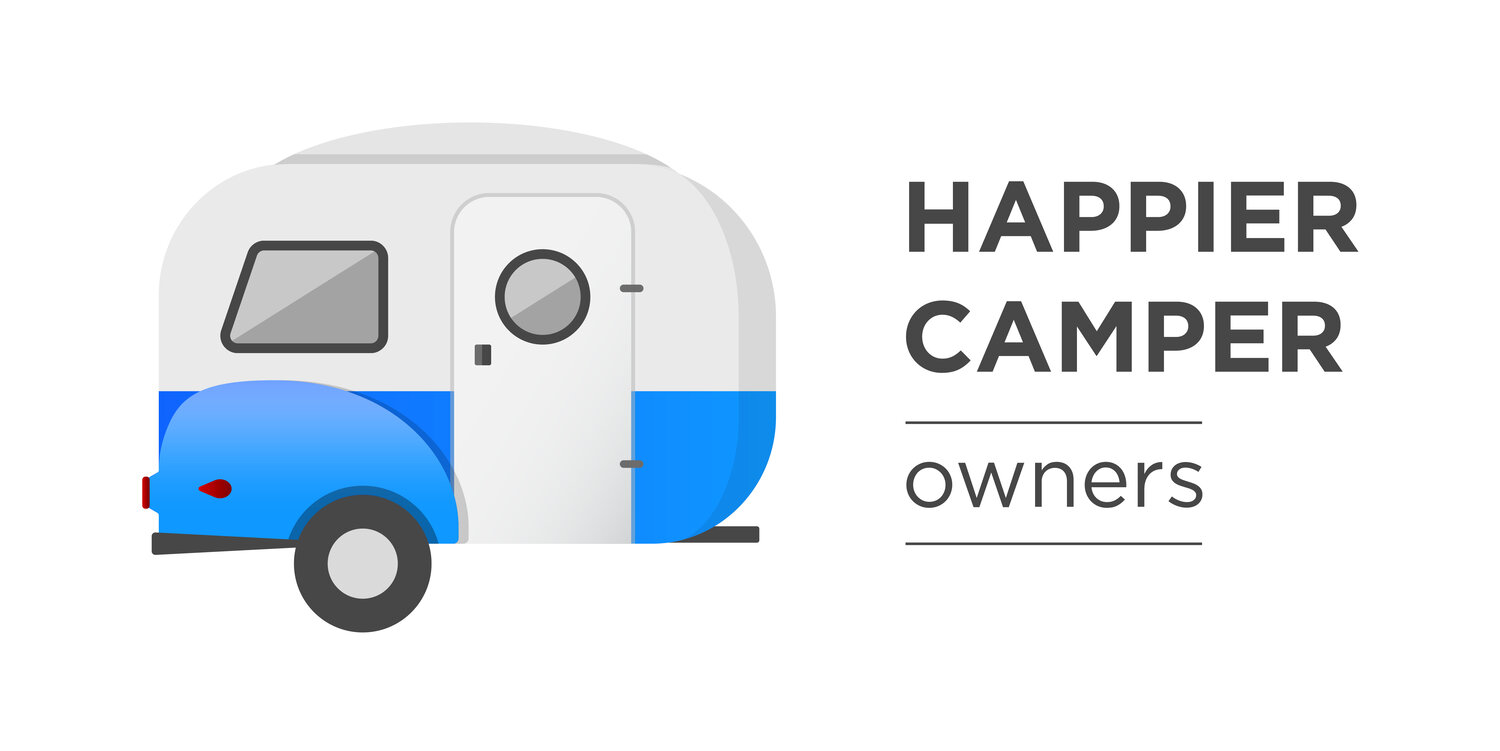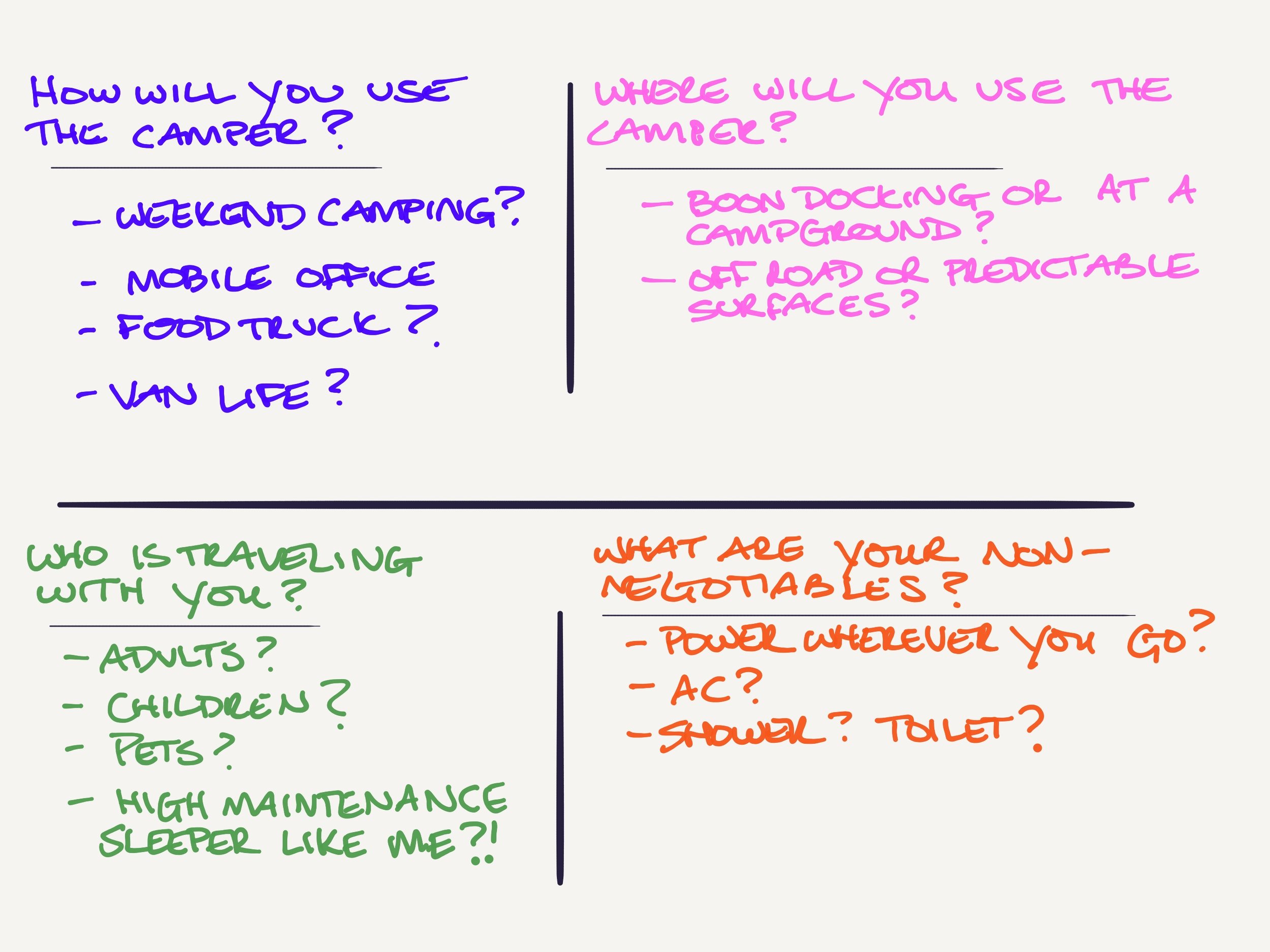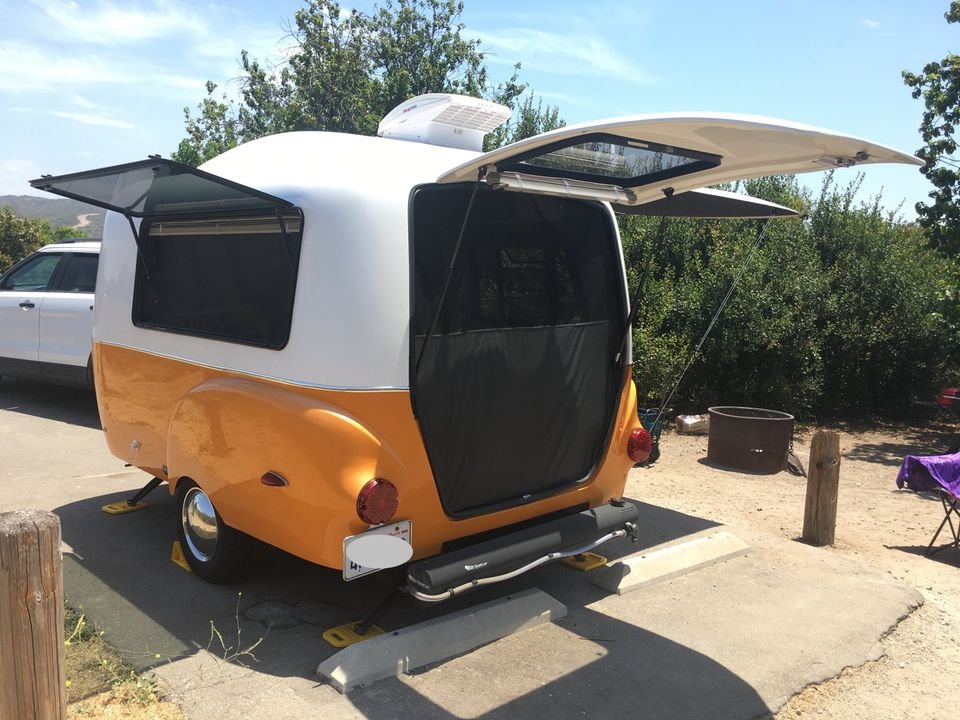I see this post a lot on the Facebook groups that I’m in and it’s sort of like asking what your favorite color should be. No one can tell you. Any response is going to be based on that person’s preferences and you almost always see a recommendation to buy the rig they have. I get that. We love our Happier Camper and think it’s awesome, but it isn’t necessarily the right rig for everyone. So to help you figure out some of the basics, here’s an overview that I hope will help. Let’s start with….
Towing vs. Driving
It starts here. This is the most fundamental distinction between the different types of RVs and you need to consider both personal preference as well as what sort of an experience you are trying to have - not to mention how much money you want to spend (although you can spend a lot of money on both categories). We are currently in the You Tow camp with our original Happier Camper HC1 (2016) and our now Happier Camper HCT (2020). And while I could talk all day about how much we love this brand, I would not tell you to go buy one unless you’ve done some soul searching first. Start a list - here are some questions to get your started.
I think one of the big questions to focus on to start is, will you want to do any stealth camping in an urban environment? I know that might sound like an odd way to think this through, but if the answer to that is yes, then you probably do NOT want a travel trailer full stop and you can eliminate the category altogether. If we were parked with our HCT on the streets of Boston overnight (if we could find parking that is), it would be pretty obvious that we were sleeping in our rig. Whether or not that’s allowed is where the stealth part comes in. Some cities, like Boston, have city ordinances that prohibit people from parking a camper on the street. You would probably want to be in a Class B or B+ as they look most like a street vehicle so if this is a consideration and part of what you want to do in your camper, strike the travel trailers off your list and start a deep dive on Class A, B, B+ and C. I wrote this article to help people understand the difference between these so check it out if you need more info.
How much space do you need?
Another big question you need to sort is, what’s your tolerance for living in a small space? Do you want an apartment on wheels? Have you lived in a house for 20 years but have been dreaming of hitting the road? Downsizing to a small travel trailer or van may not be your best move. If you do want a large living area, you’ve still got drive vs. tow options - a Class A is huge but so are some of the 5th wheels. Either one could serve your needs. But with size comes some limitations. On average, most state and national parks will allow an RV with a maximum length of 30 feet. There are always private campgrounds near those parks, but they will generally be more expensive.
How it is made and resale value
Class B+
Let me start with the You Drive rigs. One big difference between a Class C and a Class B rig is how they are built and as a result the price is dramatically different. On a Class C, the manufacturer builds the living space first and they basically bolt it onto a chassis. With a Class B, it’s much more labor intensive and they are really creating an integrated home out of the vehicle itself. A Class B is generally going to be much higher quality and so the resale value is going to be better. I did some very simple online research and from what I can find, Class C and Class A have the highest depreciation of the You Drive rigs which makes sense as Class B/B+ hold their value better.
For the You Tow rigs, there are really two different construction types: fiberglass and ‘sticks and tin’. Sticks and tin is a term that just refers to the manufacture of the rig - a wood frame with a metal sheath. Fiberglass rigs hold their value better than sticks and tin because they don’t have anything that will rot. There is differentiation on the fiberglass rig makers as well. The HC1 and HCT have a double fiberglass shell so they are great for all weather camping. The Scamp is a great fiberglass rig but they have a single shell and an interior that has, well, its walls have carpet on it. Owners call it ‘rat fur’ which I’m sure the makers of the rig wishes they did not, but honestly while it’s pretty unattractive, it does provide insulation.
Another thing to consider is the slide out. A slide out is an option on some rigs in both categories where the outer wall of the rig can slide out to make for more room. If space is really important to you, then you will want to consider a rig with a slide out.
But a word of caution… When I see slide outs, I see something that can stop working and in my experience, things stop working at pretty much the worst possible moment. I do not want to be at a campsite, getting ready to head out only to discover that the slides won’t go in. Maybe I’m just risk averse - and the space just isn’t that important to us - but I would not buy a rig with a slide out..
And now that you’ve started to think about construction and what some of the drivers of costs are, let’s talk about price. Because let’s face it, we all want the best quality stuff with the best resale value, but most of us have to think about the reality of the purchase price .
Price
It’s about to get real folks. The reality is that quality construction and resale value are going to cost more money. This is a difficult topic to parse as there’s such a wide variety of rigs that you could consider but here is what my research has yielded on the cost of new rigs in both categories.
You Drive
If you want to buy a new You Drive, the average price of a Class C is going to run you between 50-100k .Yeah, it’s a lot of money. But it might be exactly the right buy for you so don’t discount it. Class A comes in at the next lowest price point (if you can even use that term in this context) at 50-200k. And finally, the class B/B+ can run you between 150-500k.
You Tow
Let’s start at the low end with the Pop Up which new, looks like it comes in at 10-20k. A tear drop averages 20-40k. The options on travel trailers is incredibly broad so if you are interested in these or a 5th wheel, plan on 50k and up.
Whether it’s drive or tow, these prices can be pretty intimidating but consider buying used. I always list used Happier Campers on this site when I know about them and while they don’t come up often, there are usually a couple available. And remember that you get what you pay for. In particular, be careful of anything that could rot or leak, mold, moving parts like slide outs that stop working - all reasons why we love our fiberglass Happier Camper as these do not apply!
Don’t be afraid to tow
I know you are going to be afraid to tow but I have to say it anyway, because unless you’ve got experience pulling a trailer of any kind, you will probably feel intimidated by the idea of towing and it might sway your decision making. Just know that everyone starts out never having done it and they learn. You got this.
Rent before you buy
Final word of advice - try to rent a rig that you are interested in before you buy. It doesn’t have to be the exact rig you want, but if you think you want a Class C, go rent one. Want to get a pop up? See if you can find one to rent. You may immediately fall in love or you might also realize that it just isn’t meeting your needs, even if you are figuring out what those are as you go.
Why you should buy a Happier Camper
Of course I’m ending this article explaining why you should buy a Happier Camper! I’ve got a long list of things I love, but here are my top 5 for your consideration.
Fiberglass construction, double hull - nothing to rot, all season, holds its value incredibly well
Adaptiv interior - I don’t know of any other rig that allows you to constantly reconfigure the interior and if you get the HC1, you can even use it as a toy hauler
Design - the HC1 has to be the cutest camper on the market with our HCT close behind
Back hatch on the HC1 - it’s absolutely the coolest and I wish they had this option on the HCT
Light weight - both Happier Camper rigs are considered ultra-lights which means it would be very unlikely that you’d also have to buy a new tow vehicle
I’m sure there are other differentiators to consider when buying your dream RV - post your questions below and I will do my best to find you an answer!







